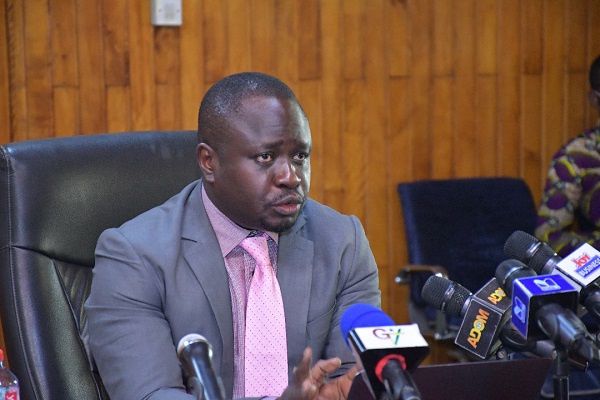The Government Statistician, Prof Samuel Kobina Anim, has advocated a strong National Statistical System that will be independent and will not be influenced by the government.
Citing the U.K. and the U.S.A as examples, he stated that the National Statistical System could be valuable in publishing undisputed facts and figures during elections.
The Amaris Institute of Statistics and Economic Research seeks to address the problems of statistical capacity gaps in Anglophone West Africa by offering timely technical support to help disseminate data through an open data platform and provide just-in-time thematic reports to inform policy decisions.
The Institute also plans to develop a structured training programme across all member countries to ensure uniformity in statistical practices.
At the launch, Government Statistician, Prof Samuel Kobina Annim re-echoed the need for statistical services to work independently without governmental influence.
“We need to get to a point where we define our independence based on our authority of the National Statistical System where the government statistical services as we have in the UK can boldly say that if you misuse statistics, we will put it in the right order”.
“But If your board is made up of government employees, and the government statistician is scared of political issues then we’ll be careful in our dispensation”, he mentioned.
The Chief Executive of the Institute of Statistics and Economic Research, Dr Emmanuel Fiadzo outlined the objectives of the institute.
According to him, “The main objective of AmariStat is to help NSOs with a pre-emptive capacity building framework to enable benchmarking NSOs’ efforts on the African Continent. The aim is to guide NSOs of member countries to embed in their NSDS a unified and structured capacity building framework”.
The Amaris Institute of Statistics and Economic Research seeks to complement the World Bank and the International Monetary Fund's efforts to strengthen the capacity and deliver high-quality data through multi-donor trust fund programs.
The institute believes despite modest improvements in social and economic statistics in the West African region in recent years, if the growing statistical capacity gaps are not effectively addressed, they could undermine the ability of national development authorities to plan, implement, and monitor progress on the growth and poverty reduction strategies and progress towards attaining the developmental goals.
The suggested approach to address the statistical capacity challenges includes the preparation, adoption and implementation of a roadmap, creating a work plan for donor engagements, guiding the implementation of the key deliverables of the NSDS to achieve results and establishing a financing architecture for effective capacity building.
Latest Stories
-
Lamens flouted some food safety laws in re-bagging rice – Former FDA Boss Alhaji Hudu Mogtari
16 mins -
Afcon exit: Our issue is administrative failure and mismanagement, not lack of talent – Saddick Adams
35 mins -
WAPCo to commence major pipeline maintenance and inspection from November 25
41 mins -
Power crisis: Amandi is off due to maintenance, not debt – ECG Boss
1 hour -
Votes cast for late Akua Donkor to be declared invalid – Electoral Commission
1 hour -
You can’t keep “incompetent” Otto Addo for the long term – Countryman Songo
2 hours -
Joy FM holds 2024 Prayer Summit for Peace
2 hours -
Lady sues Police and AG over assault in custody
3 hours -
Ghana’s railway sector has been revived under my leadership – Akufo-Addo
3 hours -
Next government must enforce C190 – Women Economic Dialogue Forum
3 hours -
NCCE engages party youth activists at Nandom on peaceful election
3 hours -
SSNIT engages stakeholders on its operations
3 hours -
Defilement: 19-year-old farmer jailed ten years, with hard labour
3 hours -
Bawumia to inaugurate new headquarters of Lands Commission on November 25
3 hours -
Sylvester Tetteh denies demolishing GBC staff bungalow
4 hours

